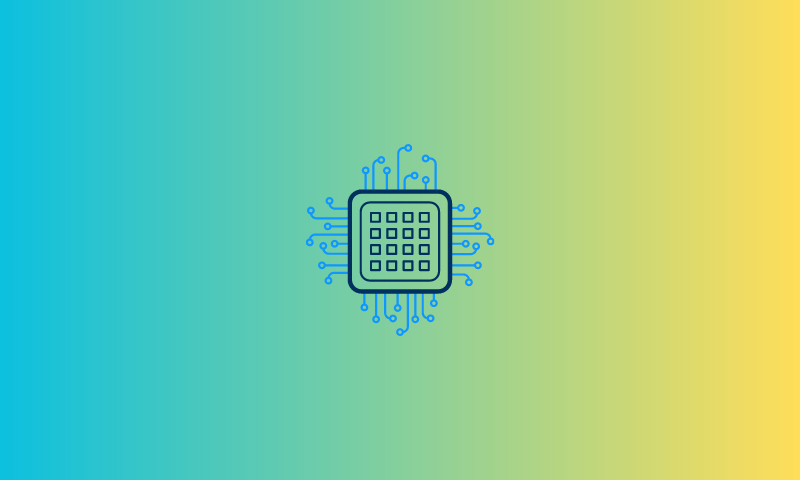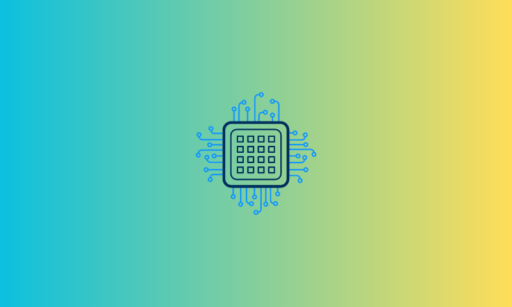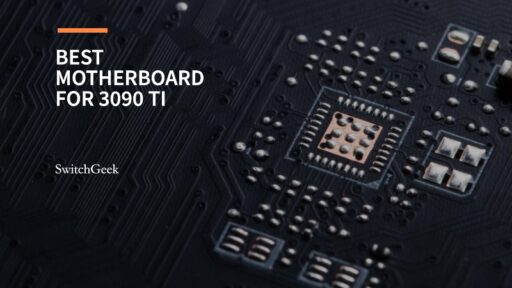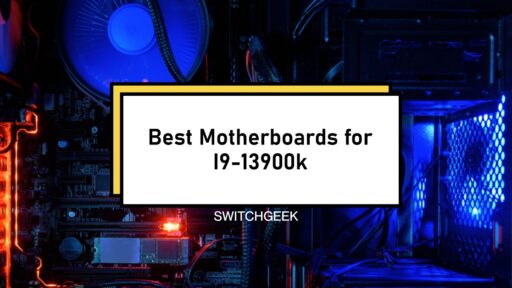The Ryzen 7 5700G is one of the most powerful CPUs on the market today, offering impressive speed, power, and efficiency. However, to get the most out of this impressive processor, you need the right motherboard. This is where we are going to help with Best Motherboard for Ryzen 7 5700g.
A motherboard plays a critical role in the overall performance of your system, including its stability, speed, and connectivity. In this article, we’ll explore the best motherboards for Ryzen 7 5700G, focusing on factors like compatibility, VRM design, memory support, expansion slots, and connectivity options.
Whether you’re building a gaming rig or workstation, choosing the right motherboard is essential to achieving optimal performance. So, let’s dive into our top picks and help you find the perfect motherboard for your Ryzen 7 5700G CPU.
Importance of a good motherboard for optimal performance:
A good motherboard is an essential component of any PC build, as it serves as the foundation for all other parts to function correctly. When it comes to getting optimal performance out of your system, the motherboard plays a critical role.
One of the most significant factors that affect performance is compatibility. Not all motherboards are compatible with all CPUs, and some may not support the latest technology. Choosing a compatible motherboard ensures that your system will operate at maximum capacity and with optimal stability.
The VRM design of a motherboard also plays a crucial role in the performance of your CPU. The VRM is responsible for providing the power needed to your CPU, and a poorly designed VRM can lead to unstable performance, system crashes, and even permanent damage to your components.
The memory support of a motherboard is also critical for optimal performance. A motherboard with limited memory support will bottleneck your system, resulting in slower overall performance. Similarly, expansion slots, like PCIe, can be used for adding additional components, such as a graphics card or high-speed storage, that can boost the performance of your system.
Finally, connectivity options like Wi-Fi, Ethernet, USB, and audio inputs and outputs can affect the overall usability of your system. Choosing a motherboard with the right connectivity options that fit your needs ensures a seamless experience without any compatibility issues.
Factors to Consider when Choosing a Best Motherboard for Ryzen 7:
Choosing the right motherboard for your Ryzen 7 5700G can be overwhelming, given the multitude of options available in the market. However, several essential factors can help you narrow down your search and find the best motherboard that meets your needs. Here are the key factors to consider when choosing a motherboard for Ryzen 7:
When looking for the best motherboard for Ryzen 7, there are several important factors to consider. First and foremost, you’ll want to ensure that the motherboard is compatible with your AMD Ryzen 7 5700G CPU. Look for motherboards that specifically state Ryzen 7 5700G compatibility or have an AM4 socket type.
Next, you’ll want to consider the VRM design of the motherboard. A high-quality VRM design will ensure that your Ryzen 7 5700G CPU receives stable and consistent power, which is essential for optimal performance. When searching for motherboards for Ryzen 7, be sure to check the VRM quality and the number of phases it has.

Memory support is another critical factor to consider when selecting a motherboard for Ryzen 7 5700G. The AMD Ryzen 7 5700G is compatible with DDR4 RAM and benefits from faster RAM speeds. Therefore, you should look for motherboards that support high-speed DDR4 RAM.
Additionally, you’ll want to consider the expansion slots available on the motherboard. PCIe, M.2, and SATA are some of the most common expansion slots found on motherboards. These slots allow you to connect additional components like graphics cards, storage devices, and network cards, which can enhance the performance of your system. Check out best motherboards for RTX 4090 GPU.
Form factor is another critical consideration when selecting a motherboard for Ryzen 7 5700G. Motherboards come in various form factors, including ATX, Micro-ATX, and Mini-ITX. Make sure to choose a motherboard with a form factor that fits your case and provides adequate space for your components.
Lastly, connectivity options like USB, Ethernet, Wi-Fi, and audio inputs and outputs should be considered. The best motherboard for Ryzen 7 5700G should have the right connectivity options to ensure compatibility with your peripherals and provide a seamless user experience.
Best Motherboard for Ryzen 7 – Selected by PC Experts
1: MSI B550M-VC ProSeries Motherboard
If you’re in the market for a high-quality motherboard that can support your Ryzen 7 processor, then the MSI B550M-VC ProSeries Motherboard is definitely worth considering. This motherboard comes with a range of features that are designed to optimize the performance of your system, making it a top contender in the Ryzen 7 motherboard market.
Specs:
Here are some of the key specs of the MSI B550M-VC ProSeries Motherboard:
| Specifications | Details |
|---|---|
| CPU Socket | AM4 |
| Chipset | AMD B550 |
| Form Factor | Micro-ATX |
| Memory Slots | 2x DDR4 DIMM (64GB Max) |
| Expansion Slots | 1x PCIe 4.0 x16, 1x PCIe 3.0 x16, 1x PCIe 3.0 x1 |
| Storage | 1x M.2 slot (PCIe 4.0/3.0 x4), 4x SATA III ports |
| Rear Panel I/O | 1x HDMI port, 1x DisplayPort, 1x USB Type-C, 2x USB 3.2 Gen 2, 4x USB 2.0, 1x Gigabit Ethernet, 3x Audio jacks |
| Networking | Wi-Fi 6, Bluetooth 5.1 |
| VRM Design | 4+2 Phase Power Delivery |
Pros:
- The MSI B550M-VC ProSeries Motherboard comes with a Wi-Fi 6 module and Bluetooth 5.1 support, making it an excellent option for users who need to connect wirelessly.
- The VRM design of the motherboard is impressive, with a 4+2 phase power delivery that provides stable and consistent power to the CPU.
- The motherboard has a PCIe 4.0 x16 slot, which is perfect for gamers who want to use high-performance graphics cards.
- The board has an M.2 slot that supports PCIe 4.0, providing fast read and write speeds for NVMe SSDs.
Cons:
- The motherboard has only two RAM slots, limiting the maximum amount of memory you can install.
- The board lacks advanced features like Thunderbolt 3 or USB Type-C with Thunderbolt support, which may be a drawback for some users.
- The motherboard’s micro-ATX form factor may limit the number of expansion options available.
Final Thoughts:
Overall, the MSI B550M-VC ProSeries Motherboard is an excellent option for users looking for a micro-ATX board that provides impressive performance and a range of features. Its Wi-Fi 6 and Bluetooth 5.1 support, along with its stable VRM design, make it an excellent choice for both gamers and productivity users alike. However, the lack of advanced features and the limited number of RAM slots may be a concern for some users. Nonetheless, if you’re looking for a high-quality motherboard that won’t break the bank, the MSI B550M-VC ProSeries is definitely worth considering.
2: ASRock B550M Pro4 Motherboard:
If you’re in the market for a new motherboard to support your Ryzen 7 5700G processor, the ASRock B550M Pro4 is a great option to consider. This motherboard comes with a range of features that are designed to optimize the performance of your system, making it a top contender in the Ryzen 7 5700G motherboard market.
Specs:
Here are the key specifications of the ASRock B550M Pro4 Motherboard:
| Specifications | Details |
|---|---|
| CPU Socket | AM4 |
| Chipset | AMD B550 |
| Form Factor | Micro-ATX |
| Memory Slots | 4x DDR4 DIMM (128GB Max) |
| Expansion Slots | 1x PCIe 4.0 x16, 1x PCIe 3.0 x16, 2x PCIe 3.0 x1 |
| Storage | 2x M.2 slot (PCIe 4.0/3.0 x4), 6x SATA III ports |
| Rear Panel I/O | 1x HDMI port, 1x DisplayPort, 1x USB Type-C, 2x USB 3.2 Gen 2, 4x USB 2.0, 1x Gigabit Ethernet, 3x Audio jacks |
| Networking | Gigabit Ethernet |
| VRM Design | 10 Phase Power Delivery |
Pros:
- The ASRock B550M Pro4 has a 10-phase power delivery, making it a very stable motherboard that can provide consistent power to the CPU.
- The motherboard has four RAM slots, which means you can install up to 128GB of memory, making it a great option for users who need a lot of memory.
- The motherboard has two M.2 slots that support PCIe 4.0, providing fast read and write speeds for NVMe SSDs.
- The board has a PCIe 4.0 x16 slot, which is perfect for gamers who want to use high-performance graphics cards.
Cons:
- The motherboard lacks advanced features like Thunderbolt 3 or Wi-Fi connectivity, which may be a drawback for some users.
- The motherboard only has a single USB Type-C port on the rear panel, which may not be enough for users who need more of this type of port.
- The board may be a bit more expensive than some other micro-ATX motherboards on the market.
Final Thoughts:
Overall, the ASRock B550M Pro4 is an excellent option for users looking for a micro-ATX motherboard that provides impressive performance and a range of features. Its 10-phase power delivery and support for up to 128GB of memory make it an excellent choice for users who need a lot of computing power. However, the lack of advanced features like Thunderbolt 3 or Wi-Fi may be a drawback for some users. Nonetheless, if you’re looking for a high-quality motherboard that can handle your Ryzen 7 5700G processor, the ASRock B550M Pro4 is definitely worth considering.
3: Gigabyte X570S Aorus AX Motherboard
If you’re looking for a high-end motherboard to support your Ryzen 7 5700G processor, the Gigabyte X570S Aorus AX is an excellent option to consider. This motherboard comes with a range of features that are designed to optimize the performance of your system, making it a top contender in the Ryzen 7 motherboard market.
Specs:
Here are the key specifications of the Gigabyte X570S Aorus AX Motherboard:
| Specifications | Details |
|---|---|
| CPU Socket | AM4 |
| Chipset | AMD X570S |
| Form Factor | ATX |
| Memory Slots | 4x DDR4 DIMM (128GB Max) |
| Expansion Slots | 1x PCIe 4.0 x16, 1x PCIe 4.0 x8, 1x PCIe 4.0 x4, 2x PCIe 3.0 x1 |
| Storage | 3x M.2 slot (PCIe 4.0/3.0 x4), 6x SATA III ports |
| Rear Panel I/O | 1x HDMI port, 3x DisplayPort, 2x USB Type-C, 4x USB 3.2 Gen 2, 2x USB 3.2 Gen 1, 2x Gigabit Ethernet, 5x Audio jacks |
| Networking | Dual 2.5G LAN |
| VRM Design | 14+2 Phase Power Delivery |
Pros:
- The Gigabyte X570S Aorus AX has a 14+2 phase power delivery, making it a very stable motherboard that can provide consistent power to the CPU.
- The motherboard has four RAM slots, which means you can install up to 128GB of memory, making it a great option for users who need a lot of memory.
- The motherboard has three M.2 slots that support PCIe 4.0, providing fast read and write speeds for NVMe SSDs.
- The board has a PCIe 4.0 x16 slot, a PCIe 4.0 x8 slot, and a PCIe 4.0 x4 slot, which is perfect for gamers who want to use high-performance graphics cards and other expansion cards.
- The motherboard has dual 2.5G LAN, providing fast network connectivity for gamers and other users who need high-speed network access.
Cons:
- The Gigabyte X570S Aorus AX is a very expensive motherboard, which may not be within the budget of many users.
- The board is also quite large, which may make it difficult to fit into smaller cases.
- Some users have reported issues with the motherboard’s BIOS, which may require some troubleshooting to resolve.
Final Thoughts:
Overall, the Gigabyte X570S Aorus AX is an excellent option for users who need a high-end motherboard that can provide impressive performance and a range of features. Its 14+2 phase power delivery and support for up to 128GB of memory make it an excellent choice for users who need a lot of computing power. However, its high cost and large size may be a drawback for some users, and the reported BIOS issues may require some additional work to resolve. Nonetheless, if you’re looking for a high-quality motherboard that can handle your Ryzen 7 processor, the Gigabyte X570S Aorus AX is definitely worth considering.
4: NZXT N7 B550 ATX AM4
The NZXT B550 N7 is a powerful and versatile motherboard designed for use with the latest AMD Ryzen processors, including the Ryzen 7 5700G. It offers a range of features that make it ideal for gamers and power users alike, including high-speed connectivity options and robust overclocking capabilities.
Specifications:
Here are some of the key specifications of the NZXT B550 N7 motherboard:
| Specification | Details |
|---|---|
| Chipset | AMD B550 |
| Form Factor | ATX |
| Socket | AM4 |
| RAM Memory Technology | DDR4 |
| Maximum RAM Memory Speed | 4400 MHz |
| PCI-E x16 Slots | 2 |
| PCI-E x1 Slots | 2 |
| M.2 Slots | 2 |
| SATA III Ports | 6 |
| USB 2.0 Ports | 2 |
| USB 3.2 Gen 1 Ports | 4 |
| USB 3.2 Gen 2 Ports | 2 |
| Ethernet | 2.5 Gigabit LAN |
| Wi-Fi | Wi-Fi 6 (802.11ax) |
| Audio | Realtek ALC1220 Codec |
| RGB Lighting | Yes |
Pros:
- Wi-Fi 6 support for high-speed wireless connectivity
- Dual Ethernet ports for added networking flexibility
- Robust overclocking features for power users and enthusiasts
- Multiple M.2 slots for high-speed storage options
- Sleek and stylish design with customizable RGB lighting
Cons:
- Higher price point compared to some other B550 motherboards
- Limited USB connectivity options compared to some other models
5: Asus TUF GAMING X570-PRO
The ASUS TUF Gaming X570-Plus is a feature-packed motherboard designed for use with the latest AMD Ryzen processors, including the Ryzen 7. It offers a range of features that make it ideal for gamers and power users alike, including high-speed connectivity options and robust cooling capabilities.
Specifications:
Here are some of the key specifications of the ASUS TUF Gaming X570-Plus motherboard:
| Specification | Details |
|---|---|
| Chipset | AMD X570 |
| Form Factor | ATX |
| Socket | AM4 |
| RAM Memory Technology | DDR4 |
| Maximum RAM Memory Speed | 4400 MHz |
| PCI-E x16 Slots | 2 |
| PCI-E x1 Slots | 3 |
| M.2 Slots | 2 |
| SATA III Ports | 8 |
| USB 2.0 Ports | 4 |
| USB 3.2 Gen 1 Ports | 6 |
| USB 3.2 Gen 2 Ports | 2 |
| Ethernet | Gigabit LAN |
| Audio | Realtek S1200A Codec |
| RGB Lighting | Yes |
Pros:
- Robust cooling capabilities with multiple fan headers and an integrated VRM heatsink
- High-speed connectivity options with USB 3.2 Gen 2 ports and Wi-Fi 5 (802.11ac) support
- Dual M.2 slots for high-speed storage options
- Sleek and stylish design with customizable RGB lighting
- Durable construction with ASUS TUF Gaming components and a 5-year warranty
Cons:
- Limited PCI-E connectivity options compared to some other X570 motherboards
- No dual Ethernet ports or Wi-Fi 6 support
Let’s take a look at common FAQs:
Q: What is AAFP on a motherboard?
Ans: AAFP on a motherboard stands for “analog audio front panel.” It refers to the connector on the motherboard that allows the user to connect the audio cable from the computer case’s front panel to the motherboard.
Q: What can be hooked up to a motherboard RGB header?
Ans: RGB headers on a motherboard allow you to connect RGB lighting strips, fans, and other RGB devices to the motherboard. This allows you to synchronize the lighting effects with other components in your system or control the lighting effects using software.
Q: How long does a motherboard last?
Ans: The lifespan of a motherboard depends on various factors, such as its quality, usage, maintenance, and environmental factors. On average, a motherboard can last anywhere from 4 to 6 years.
Q: Where do today’s computers store almost all motherboard configuration data?
Ans: Today’s computers store almost all motherboard configuration data in the CMOS (Complementary Metal-Oxide-Semiconductor) chip on the motherboard.
Q: How much does a motherboard cost?
Ans: The cost of a motherboard depends on the features and specifications it offers. Basic motherboards can cost as little as $50, while high-end motherboards can cost upwards of $500 or more.
Q: How do you clean a motherboard?
Ans: To clean a motherboard, use a soft brush or a can of compressed air to remove dust and debris. You can also use isopropyl alcohol and a soft cloth to clean the motherboard’s surface.
Q: How do you install drivers for a motherboard?
Ans: To install drivers for a motherboard, you need to download the latest drivers from the manufacturer’s website and install them on your computer. You can do this manually or use a driver installation software.
Q: What function does a motherboard’s chipset perform?
Ans: The chipset on a motherboard performs various functions, such as managing data flow between the CPU, memory, and other components. It also provides support for various hardware features, such as USB, SATA, Ethernet, and audio. The chipset plays a critical role in the overall performance and functionality of a motherboard.
Q: What are the compatible chipsets for Ryzen 7?
Ans: Compatible chipsets for the Ryzen 7 processor. The X570, B550, and A520 are 500-series chipsets while the X470 and B450 are 400-series chipsets. A BIOS update may be required for the 400-series chipsets to ensure compatibility with the Ryzen 7 5700g processor.
Conclusion: Choosing the best motherboard for the Ryzen 7 processor is crucial to achieving optimal performance and unlocking its full potential. When selecting a motherboard, it is important to consider factors such as socket compatibility, VRM quality, chipset, and expansion options. The motherboards mentioned in this article are some of the best options available in the market, with varying price ranges and features to suit different needs and budgets.
Remember, investing in a high-quality motherboard can have a significant impact on your PC’s overall performance and longevity. Therefore, take your time to research and consider your options carefully before making a purchase. With the right motherboard, you can ensure that your Ryzen 7 5700G processor runs smoothly and efficiently, providing you with the best possible computing experience.



